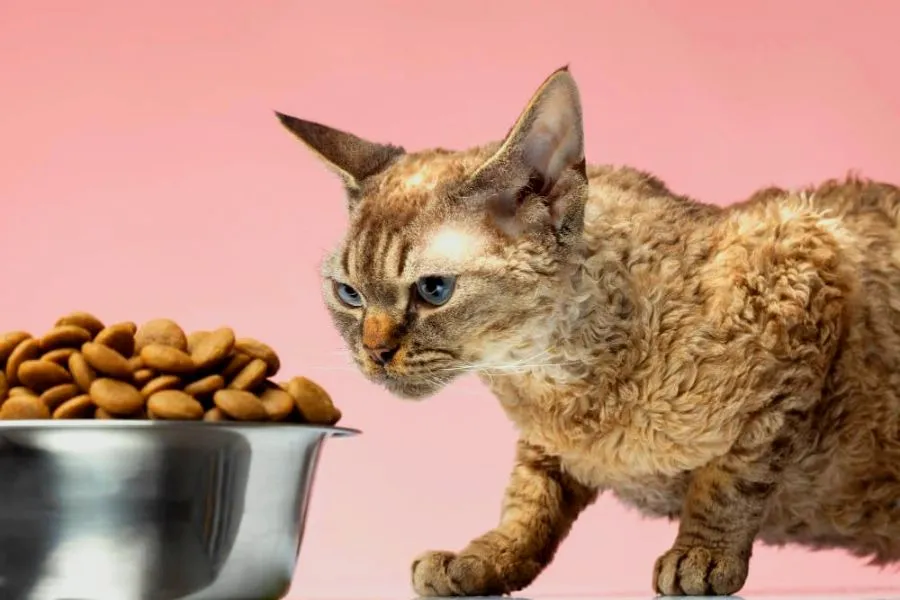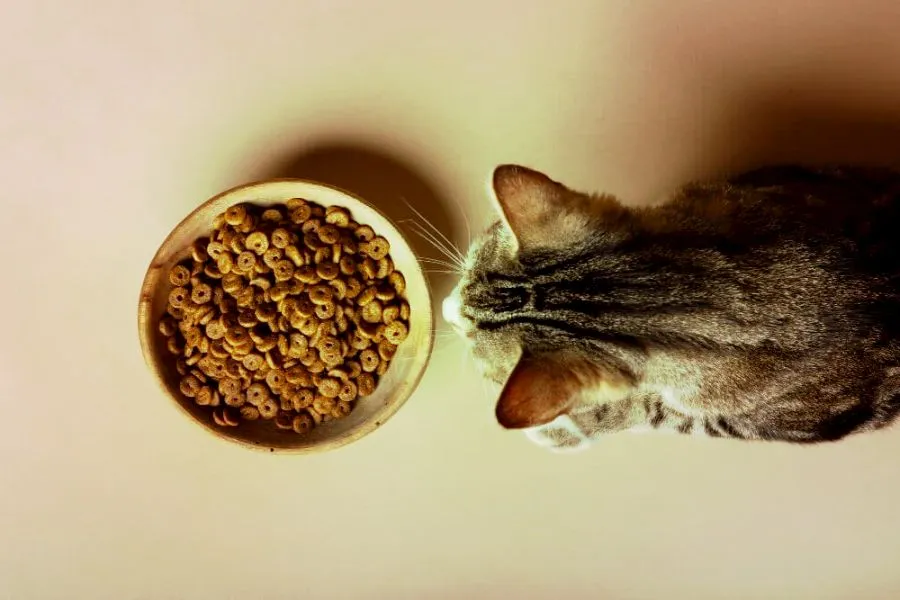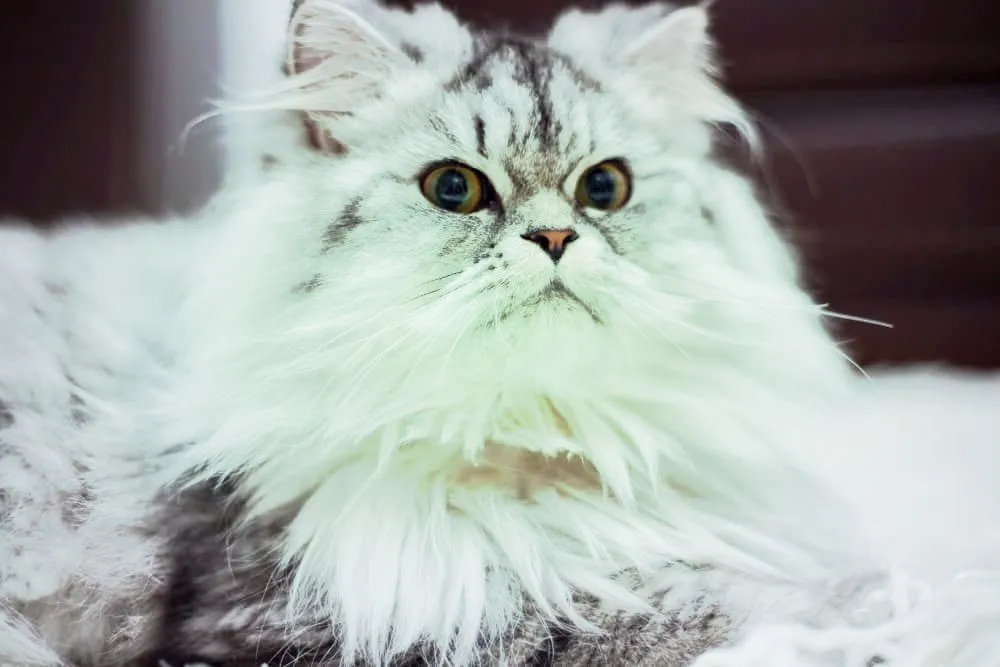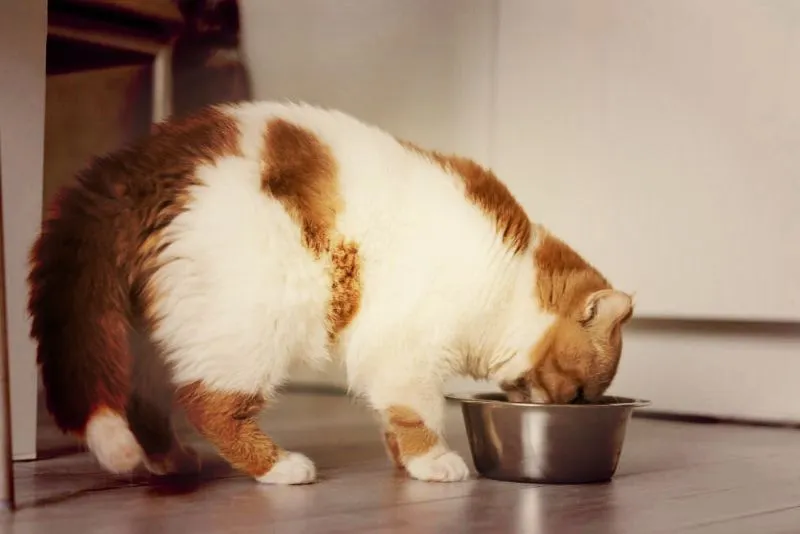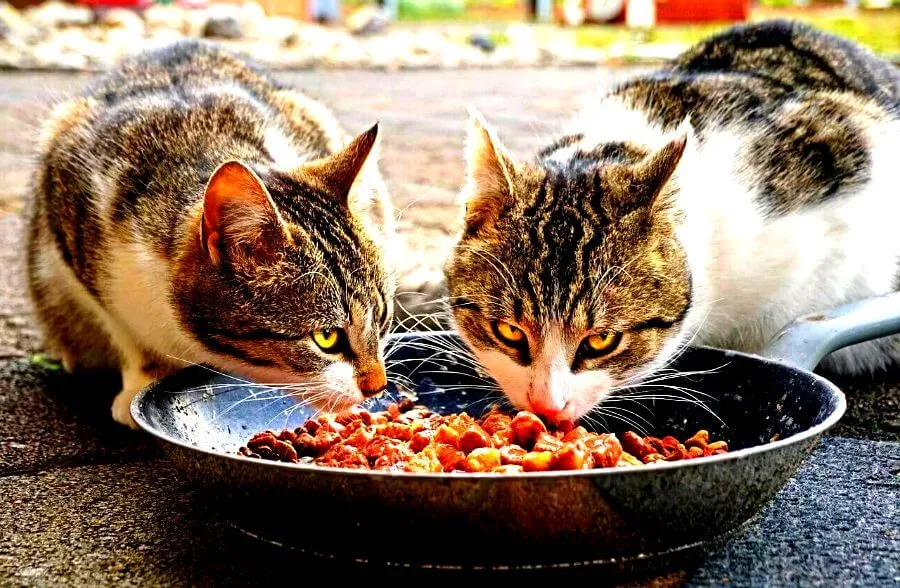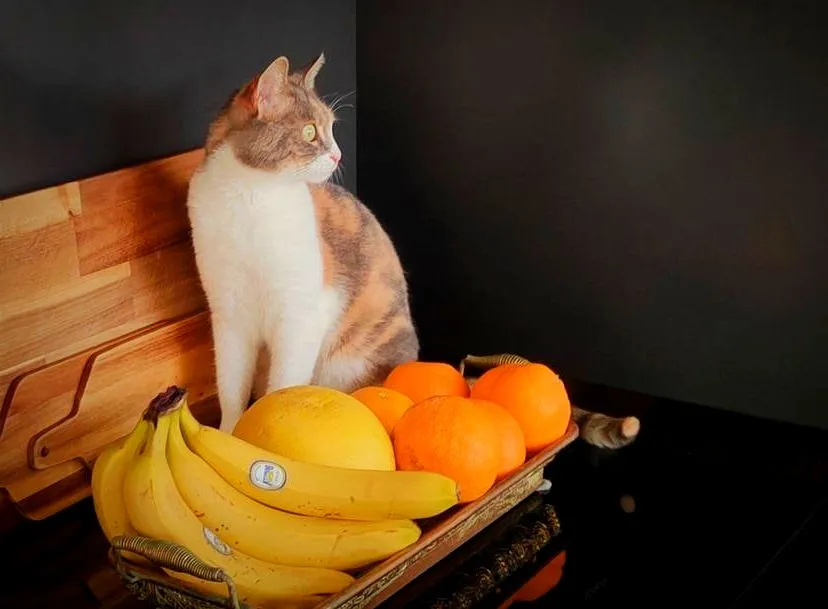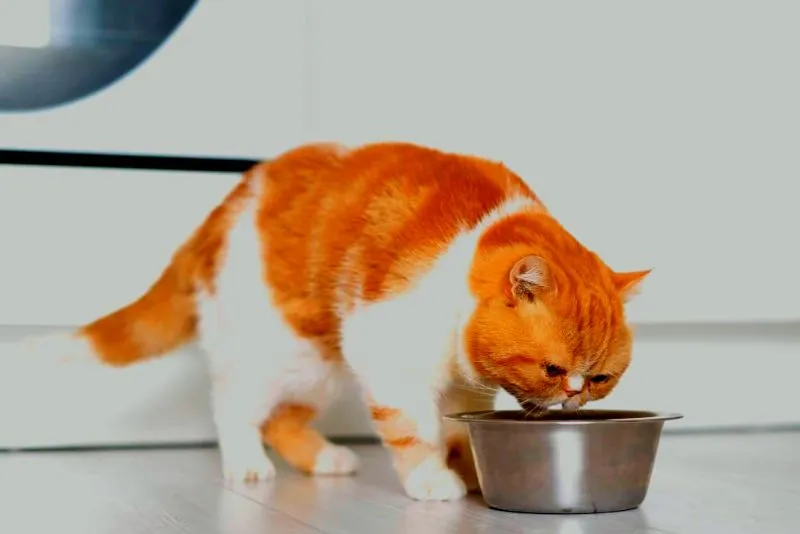
Cats can eat certain human foods, such as cooked chicken and salmon, in moderation. Cats are notorious for their picky eating habits, with many owners wondering what human foods they can safely share with their feline friends.
While it’s true that cats have specific dietary needs and require a balanced, species-appropriate diet, there are a few human foods that can be enjoyed by cats in moderation.
Cooked chicken and salmon, for example, are safe and healthy choices that can provide a tasty treat for your furry companion.
However, it’s important to note that these foods should always be cooked and free from any seasonings or additional ingredients that may be harmful to cats.
We will explore some of the human foods that cats can eat, as well as the potential risks and benefits associated with them.
What Can Cats Eat?
Cats are known for being finicky eaters, but there are several human foods that they can safely consume. One popular choice is cooked chicken. Cats can enjoy small amounts of lean, boneless chicken as a treat or mixed into their regular diet.
Another option is fish, such as salmon or tuna. However, it’s important to remove any bones and ensure the fish is cooked thoroughly to avoid potential health risks.
Additionally, many fruits and vegetables are safe for cats. Examples include small portions of cantaloupe, blueberries, and cooked carrots.
However, it’s essential to remember that these foods should only be given as occasional treats and not as a significant part of their diet.
When introducing any new foods to a cat’s diet, it’s crucial to monitor for any adverse reactions and consult a veterinarian if any concerns arise.
By offering a variety of safe human foods, cats can enjoy extra variety in their diet while still maintaining their health and well-being.
Fruits
Cats are obligate carnivores, meaning their diet mainly consists of animal protein. However, they can eat certain fruits in moderation, but not all fruits are safe for feline consumption. It’s important to know which fruits are safe and beneficial for cats.
Some fruits that cats can eat include bananas, blueberries, and watermelon. These fruits provide vitamins, antioxidants, and hydration.
Bananas are a good source of potassium and can be given to cats as a treat. Blueberries are high in antioxidants and can support a cat’s immune system.
Watermelon, with its high water content, can help keep cats hydrated. However, it’s crucial to remove any seeds and the rind before offering these fruits to cats.
Additionally, it is always advisable to consult with a veterinarian before introducing any new foods into a cat’s diet to ensure their safety and well-being.
Vegetables
Cats can safely consume certain vegetables in moderation as part of a balanced diet. Leafy greens, such as spinach and kale, are packed with beneficial nutrients like vitamins A, C, and K. These vegetables can support a cat’s overall health and provide a source of fiber.
Additionally, green peas are rich in protein and offer a crunchy texture that cats may enjoy. Carrots can be given to cats in small amounts, as they contain beta-carotene, which is beneficial for eye health.
However, it’s essential to cook or steam them to make them easier to digest. While cats can eat vegetables, it’s crucial to remember that their primary diet should consist of meat-based foods, as they are obligate carnivores.
Consulting with a veterinarian before introducing any new foods to your cat’s diet is always recommended. With proper research and moderation, incorporating vegetables into your cat’s meals can be a healthy addition.
Cooked Fish
Cooked fish is one human food that cats can safely consume. It is a great source of protein and contains omega-3 fatty acids, which are beneficial for their overall health.
When preparing cooked fish for your feline friend, ensure that it is boneless and thoroughly cooked to avoid any potential risks. Certain types of fish, such as salmon and tuna, can be given to cats as an occasional treat.
However, it is important to remember that fish should not be the main staple of their diet. It is recommended to consult with a veterinarian before introducing any new food to your cat’s diet, including cooked fish.
By following these guidelines, you can offer your cat a tasty and nutritious treat while ensuring their well-being.
Rice
Rice is a human food that cats can safely eat in moderation. It is a good source of carbohydrates and can provide energy for your feline friend.
However, it is important to remember that cats are obligate carnivores and their diet should primarily consist of meat-based protein.
Rice should only be given as a side dish or a small portion mixed with their regular food. Additionally, it is best to offer cooked rice to avoid any potential digestive issues.
Cats may enjoy rice as a temporary treat or to help soothe an upset stomach, but it should not be a staple in their diet.
As always, it is essential to consult with your veterinarian before introducing any new foods to your cat’s diet to ensure they are safe and appropriate.
Eggs
Eggs are a common human food that can also be enjoyed by cats. However, it is important to note that eggs should always be cooked before being given to your feline friend. Raw eggs can contain salmonella and other harmful bacteria that can be harmful to cats.
Cooked eggs, on the other hand, are a great source of lean protein and can provide valuable nutrients for your cat’s overall health.
Scrambled eggs or boiled eggs can be a wonderful occasional treat for your cat. Make sure to cook them thoroughly without adding any seasoning or spices.
It is also crucial to avoid using butter or oil when cooking the eggs for your cat, as these can be too fatty and may lead to digestive issues. Remember, moderation is key when it comes to adding eggs to your cat’s diet.
Providing them as an occasional treat can be a healthy and enjoyable addition to their meals.
Meat
Meat is a staple in many cat owners’ diets, but can cats eat it too? The answer is yes, cats are carnivores and require meat in their diet. Still, there are a few essentials things to remember.
First, it is crucial to ensure that the meat is cooked thoroughly, as raw meat can contain harmful bacteria that can make your cat sick.
Additionally, avoid seasoning the meat with onions, garlic, salt, or other spices, as these can be toxic to cats. Plain, unseasoned cooked chicken, turkey, or beef is usually safe for cats to eat in small quantities.
When offering meat to your feline friend, be sure to remove any bones, as they can pose a choking hazard.
It is always best to consult with your veterinarian before introducing any new foods to your cat’s diet to ensure they are getting the proper nutrition they need.
What Can Cats Not Eat?
Cats are often curious creatures, especially when it comes to food. However, it’s important to know what they can and cannot eat to ensure their safety and well-being. While many human foods are safe for cats to consume, there are some that should be strictly avoided.
Foods such as chocolate, caffeine, alcohol, onions, garlic, and grapes can be toxic to cats and should never be given to them. Additionally, certain dairy products like milk and cheese can cause upset stomachs and diarrhea in felines due to lactose intolerance.
It’s also important to keep in mind that cats have specific nutritional needs that may not be met by consuming human foods alone. Therefore, it’s best to consult with a veterinarian before introducing any new foods into your cat’s diet.
By being mindful of what your cat can and cannot eat, you can ensure their health and happiness.
Oranges
Oranges are a common fruit that many people enjoy, but can cats eat oranges? While cats are obligate carnivores, meaning their diet should primarily consist of meat, occasional small amounts of fruits can be beneficial for them. Oranges are not toxic to cats, but they should be given in moderation.
The high acidity of oranges can cause gastrointestinal upset in some cats, leading to vomiting or diarrhea. Cats may also not enjoy the strong citrus scent of oranges, which can make them avoid the fruit altogether. If you want to offer oranges to your cat, it is important to remove the seeds and any skin to prevent choking hazards.
Additionally, it would be best to consult your veterinarian before introducing oranges or any other human foods into your cat’s diet, as they can provide guidance based on your cat’s specific needs and health condition.
Onion And Garlic
Onion and garlic are common ingredients in many human meals, but they can be toxic to cats. Both onion and garlic contain a substance called thiosulfate, which can cause a condition called Heinz body anemia in felines.
This condition occurs when the red blood cells are damaged and break down, leading to weakness, lethargy, and even death in severe cases.
While a small amount of onion or garlic may not immediately harm your cat, it is always best to err on the side of caution and avoid feeding them any dishes that contain these ingredients.
It is also essential to be mindful of hidden sources of onion and garlic, such as seasonings, sauces, or baby food that may contain small amounts of these foods.
So, remember to keep your furry feline safe by keeping onion and garlic away from their diet.
Mushrooms
Mushrooms can be a tricky human food when it comes to feeding them to cats. While certain varieties may be safe, others can be toxic and cause serious harm. It is essential to consult with a veterinarian before offering any mushrooms to your feline friend.
Some edible mushrooms like shiitake, white button, and oyster mushrooms are generally considered safe for cats. However, it is crucial to feed them in moderation and ensure they are thoroughly cooked to avoid potential digestive issues. Wild mushrooms should always be avoided as they often contain toxins that can be fatal for cats.
Additionally, some cats may have allergies or sensitivities to mushrooms, so observing any adverse reactions is vital. Overall, while some mushrooms can be incorporated into a cat’s diet, it is important to exercise caution and consult with a professional to ensure your pet’s safety.
Alcohol
Alcohol is one human food that cats should never consume. It is toxic and can have severe adverse effects on their health. Cats lack the necessary enzymes to metabolize alcohol, making it extremely dangerous for them to ingest even small amounts.
Alcohol poisoning in cats can lead to symptoms such as vomiting, diarrhea, difficulty breathing, seizures, and even coma or death.
It’s important to keep all alcoholic beverages out of your cat’s reach and educate family members and guests about the dangers of sharing drinks with them.
If you suspect that your cat has consumed alcohol, it is crucial to seek veterinary help immediately. Remember, cats have different dietary needs than humans, and it’s essential to provide them with a nutritionally balanced diet that is specifically formulated for their well-being.
Chocolate
Chocolate is a popular sweet treat enjoyed by many humans, but it can be extremely dangerous for cats. It contains theobromine, a stimulant that cats cannot metabolize effectively.
If ingested, even in small amounts, chocolate can cause symptoms such as vomiting, diarrhea, rapid breathing, increased heart rate, and potentially more severe reactions like tremors or seizures.
It’s important for cat owners to remember that chocolate should never be given to their feline friends as a treat or accidentally left within their reach. Instead, opt for cat-friendly snacks recommended by veterinarians.
Sharing a loving bond with our pets also means ensuring their safety by understanding what foods are safe and suitable for their consumption.
By being well-informed and attentive to their dietary needs, we can keep our furry companions happy and healthy.
A Final Word
In essence, it is crucial to be cautious when feeding cats human foods. While some foods can be safe and even beneficial, others can be harmful and potentially fatal. Consulting with your veterinarian and doing thorough research is essential to ensuring the health and well-being of your feline friend.
Providing a balanced and nutritionally appropriate diet formulated specifically for cats is always the best choice to keep them happy and healthy in the long run.

